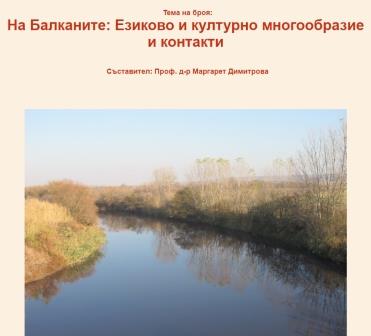БЕЛЕЖКИ ЗА ФОРМИТЕ НА ДВЕ БЪДЕЩИ ВРЕМЕНА В БЪЛГАРСКИЯ ПРЕСЕЛНИЧЕСКИ ГОВОР В УЗУНКьОПРЮЙСКО
NOTES ON THE FUTURE TENSE FORMS IN THE BULGARIAN REFUGEE’S DIALECT SPOKEN AROUND UZUNKÖPRÜ (TURKEY)
Author(s): Ivan G. Iliev, Petko PetkovSubject(s): Anthropology, Social Sciences, Language studies, Language and Literature Studies, Semiotics / Semiology, Applied Linguistics, Sociology, Morphology, Semantics, Pragmatics, Historical Linguistics, Comparative Linguistics, South Slavic Languages, Philology, Phraseology
Published by: Асоциация за антропология, етнология и фолклористика ОНГЬЛ
Keywords: future tense particles; Bulgarian dialect; Muslim Bulgarians;
Summary/Abstract: This article discusses future tense particles in a Bulgarian dialect spoken in European Turkey (in the villages around the towns of Uzunköprü and Babaeski). The dialect is spoken by Muslim Bulgarians who left Bulgaria at the end of the 19th century or later. Most of them originate from Middle Northern Bulgaria but some of them have come to this place from Northern Greece and have mixed with the others. There is a variety of future tense particles in the dialect under consideration: ša, sa, za, ža ‘shall, will’. The authors show examples of the use of the above mentioned particles and draw conclusions about their origin in the dialect analyzed.
Journal: Електронно списание »Онгъл«
- Issue Year: 2019
- Issue No: 16
- Page Range: 92-102
- Page Count: 11
- Language: Bulgarian

